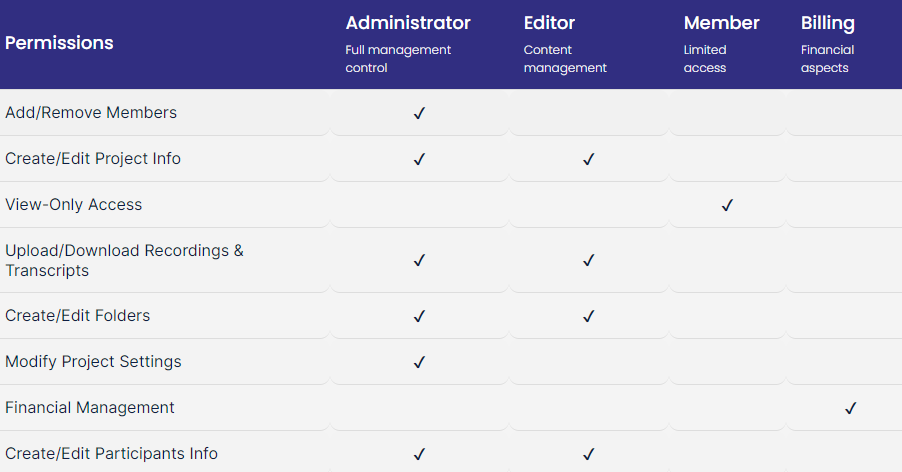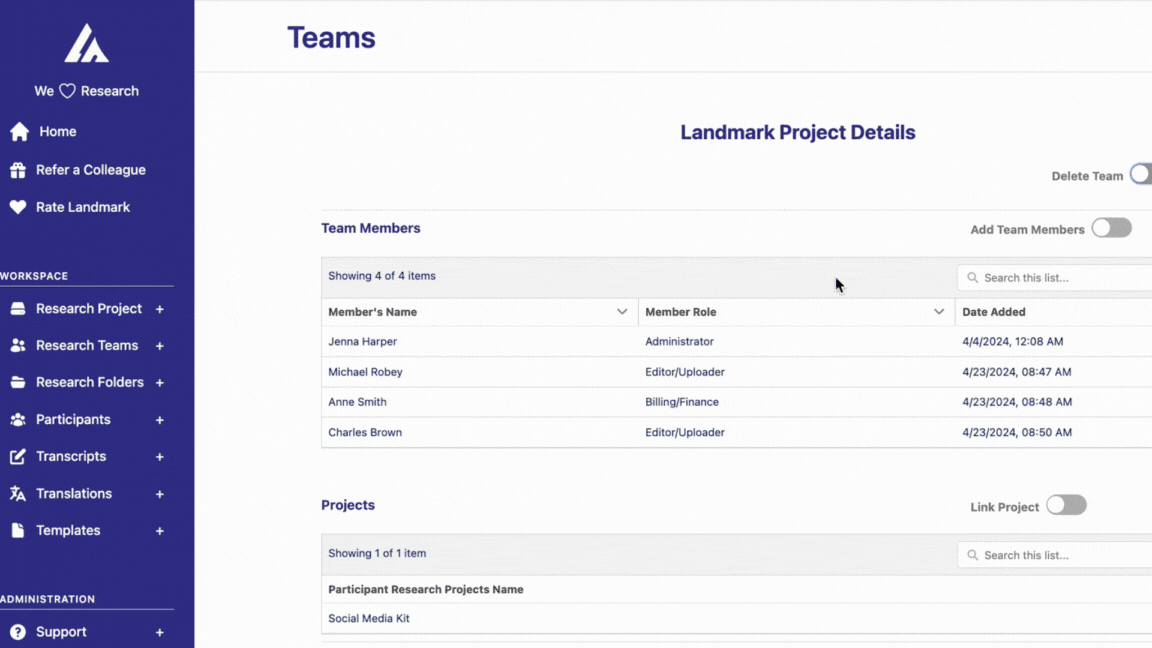Simplifying Multisite Research Coordination
Dr. S leads a multi-university study involving several top-tier universities
Background
Dr. S, a renowned researcher in public health at a prestigious university, was leading a groundbreaking study on the impact of urban green spaces on mental health.
This ambitious project involved multiple sites across different universities, including several top-tier organizations.
Each site had its own team responsible for collecting and analyzing data, creating a need for efficient collaboration and management.
Challenges
Dr. S faced several challenges including standardizing data collection, monitoring progress, ensuring secure data access, and managing team roles across locations.
- • Creating a standardized method for data collection and processing across different universities was complex and time-consuming.
- • Dr. S needed a centralized system to monitor progress and maintain visibility into file uploads and completions across all sites.
- • It was essential to guarantee secure access to sensitive data across different locations.
- • Assigning and managing roles for team members at different sites was challenging.
Solution
Landmark Associates' new feature enabled Dr. S to create customized research teams, ensuring efficient collaboration, centralized control, and enhanced security.
- ✔ Dr. S created separate teams for each university involved in the study, each with tailored roles and access permissions.
- ✔ Roles were assigned based on activities:
- • Data Collectors: Responsible for uploading data files.
- • Data Analysts: Access to download and analyze files.
- • Administrative Assistants: Manages invoices and administrative documents.
- ✔ Dr. S was added to each team with full visibility of all activities, including file uploads and completions.
- ✔ A unified dashboard provided him with real-time updates on the number of files uploaded and their status across all sites.
- ✔ Access was restricted based on roles, ensuring that only authorized personnel could view sensitive data.
 Customized Role Management: Enhance Team Efficiency with Targeted Permissions and Roles
Customized Role Management: Enhance Team Efficiency with Targeted Permissions and Roles
Implementation
Dr. S implemented the new Teams feature across the study, establishing dedicated teams with defined roles, using the dashboard for real-time monitoring, and improving communication.
- ✔ Team Setup: Established dedicated teams for each university involved, with clearly defined roles and access permissions.
- ✔ Centralized Monitoring: Utilized the dashboard to monitor progress across all sites in real-time, including file uploads and completions.
- ✔ Efficient Communication: Reduced the need for frequent check-ins and manual updates by relying on the centralized dashboard.
 Experience the efficiency of our dashboard, designed to simplify your workflow and optimize productivity
Experience the efficiency of our dashboard, designed to simplify your workflow and optimize productivity
Results
Using the new Teams feature improved coordination, centralized control, efficiency, and data security in Dr. S study.
- ✔ Teams across different universities collaborated more efficiently, with consistent data collection and processing.
- ✔ Dr. S had real-time visibility into the project’s progress across all sites, enhancing his ability to manage the study.
- ✔ The improved workflow reduced the need for manual updates and check-ins, saving time and resources.
- ✔ Role-based access ensured that sensitive data remained secure and accessible only to authorized personnel.
The new Teams feature enhanced coordination and management of Dr. S multisite study.
By creating dedicated teams with customized roles, permissions, and centralized oversight, it facilitated efficient collaboration, ensuring success.
This case study demonstrates the Teams feature potential to optimize complex research projects involving multiple sites and institutions.
How could it improve the coordination and efficiency of your multisite research projects?
